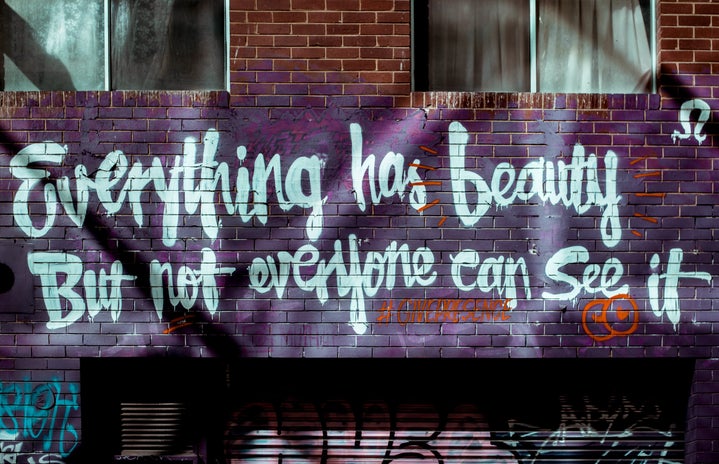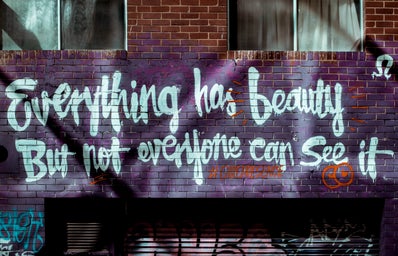It was the beginning of another school year and the university bookstore was as cramped as ever. Students scurrying around the store as they frantically search from one overpriced textbooks to another. I looked over to the lineup of students as they clutched numerous textbooks at hand, ready to spend another round of their student loans. I saw this guy and thought he was cute. My friends proceeded to persuade me to introduce myself to him. But I refused and I said, “he’s probably only into white girls”. The statement at the time may seem like an empty and random one, but there truly is a lot to unpack from those words.
I’ve never really been the type to express what I’m thinking publicly. But as the world continues to change, whether it be for the better or worse, I’ve finally come to terms that it’s completely fine to express my thoughts and opinions. So, today, allow me to talk about an issue that has greatly affected not only me but also a few people that I know. It’s the topic of representation.
Representation was something I never really thought about as a kid. I mean like, I’ve never thought about representation consciously, it makes sense I was a child. But as I grew older, I started to notice things I never really cared for when I was younger. In fact, I didn’t just notice, I started to question. I questioned why I couldn’t be like the girls in movies that I saw and the books that I read. None of those girls looked like me. So as a developing teen that was inevitably fitting into her own skin, I didn’t like it. In short, I didn’t like how I was Filipino.
I do believe that my own experiences and the things I’ve witnessed or heard played a huge role in the mindset I had as a teen. Let’s break it down, shall we?
Growing up, I had very fair skin and light hair, and in the Philippines, that was seen as “pretty”. In fact, most of the time, if you were light-skinned you were nicknamed “tisay” (Filipino slang for a fair-skinned girl/woman). But, obviously, that soon changed as I grew. Yet the Filipino culture still found it difficult to change their standards of beauty. To this day, it’s still apparent that lighter-skinned Filipinos are considered more beautiful. In fact, this is supported by the numerous skin-whitening products that saturate the beauty industry in the Philippines. Not to mention the number of Filipino celebrities that endorse whitening products and treatments. The sad truth is, Filipino culture beautifies and prefers eurocentric features over its people’s own unique beauty. Look, this isn’t a new issue. The issue of skin hierarchies has been evident and an ongoing cycle since the sixteenth century (Filipiknow). This idea of skin hierarchy was brought by the Spaniards when they invaded the Philippines. If you want to learn more, here you go. So, having fair-skin, lighter hair and a taller nose was the epitome of beauty according to the things I’ve seen in movies and tv shows. Everything I really wasn’t. Then I moved to Canada and most of the girls in my class fit that standard of beauty I saw in movies, tv shows and books! And, once again, I did not. It was hard, it really took a toll on how I saw myself. I didn’t think I was pretty enough to be seen by any of the guys I had crushes on when I was kid. My mindset was, “Oh they probably won’t be into Asian girls…”.
I want to say that I’m completely over this kind of mindset. But I don’t want to lie to you. Obviously, as you read at the start of this article, this mindset is still ingrained in my way of thinking. But it doesn’t mean that all hope is lost. As I write this article, I’ll tell you that I still have moments of insecurities (in my opinion, everyone does), but that’s what is great about it. I am comfortable admitting to myself that these insecurities exist and I’m learning to move past them. I’m learning that these self-deprecating thoughts are both a product of my own existence and the society I grew up in.
Hence, I hope modern society continues to go down the correct and appropriate path of representation. And yes, I do emphasize correct and appropriate because I’m aware that not all representations are positive (but that’s for another article). Where multiple forms of media portray the extensive and complex embodiments of beauty. That having only one standard is simply unrealistic in this world that we live in. If we, as a society, don’t acknowledge this, then we really haven’t changed.
I do applaud that there is visible change now, which is good. But I hope this isn’t it. I hope we aren’t just “doing representation” to check it off from our list or to avoid the possibility of people calling us out. I hope there is more.
References:
https://filipiknow.net/filipino-obsession-white-skin/



